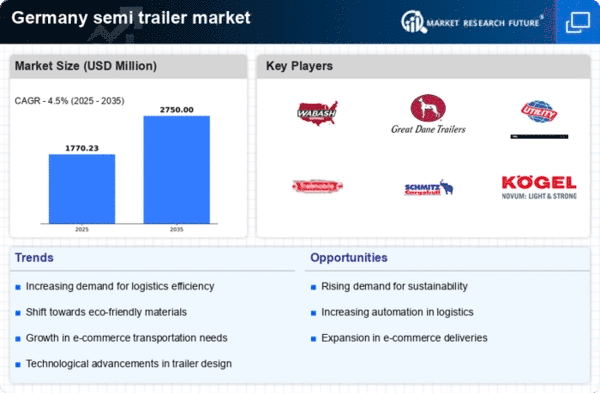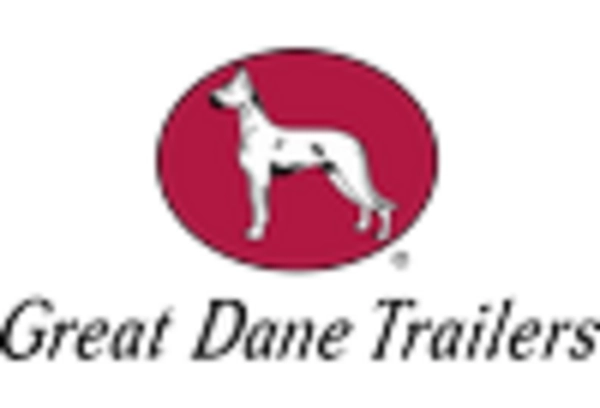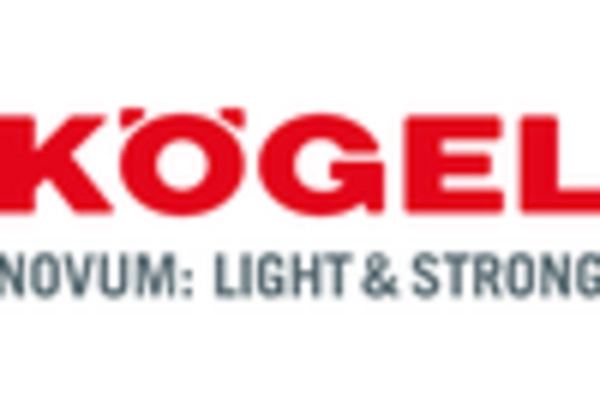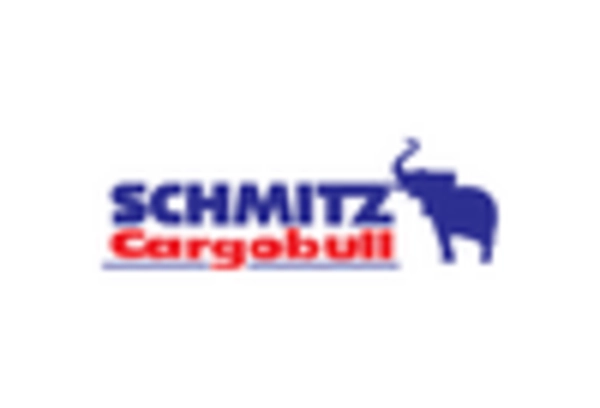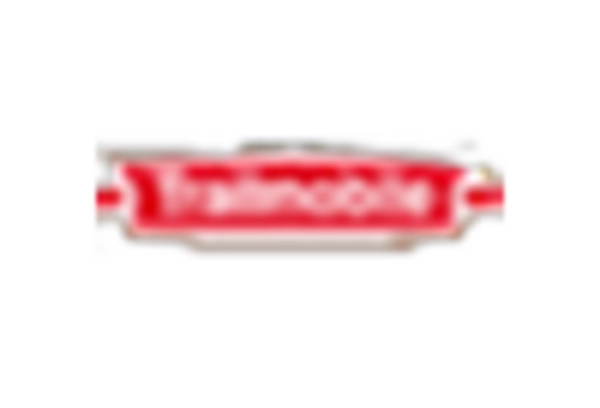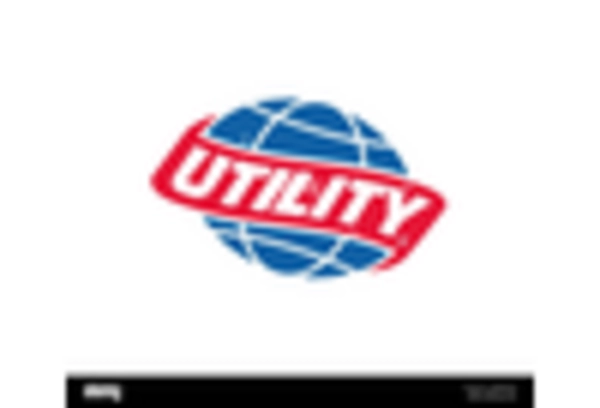Regulatory Compliance and Standards
The semi trailer market in Germany is significantly influenced by stringent regulatory compliance and standards. The European Union has established various regulations aimed at enhancing safety and environmental sustainability. For instance, the Euro 6 emissions standard mandates lower emissions from heavy-duty vehicles, including semi trailers. This regulatory framework compels manufacturers to innovate and adapt their products to meet these requirements. As a result, the semi trailer market is witnessing a shift towards more eco-friendly designs and technologies. Compliance with these regulations not only ensures market access but also enhances the competitive edge of manufacturers. The increasing focus on safety standards further drives the demand for advanced braking systems and stability controls in semi trailers, thereby shaping the market landscape in Germany.
E-commerce Growth and Logistics Demand
The rise of e-commerce in Germany has a profound impact on the semi trailer market. As online shopping continues to expand, the demand for efficient logistics and transportation solutions increases. In 2025, the e-commerce sector is projected to grow by approximately 15%, necessitating a robust logistics infrastructure. This growth translates into a heightened need for semi trailers capable of handling diverse cargo types and volumes. The semi trailer market is adapting to these demands by offering specialized trailers designed for last-mile delivery and temperature-sensitive goods. Additionally, the integration of technology in logistics, such as real-time tracking and automated inventory management, further enhances the efficiency of semi trailers in meeting the evolving needs of the e-commerce sector.
Infrastructure Development and Investment
Germany's ongoing investment in infrastructure development plays a crucial role in shaping the semi trailer market. The government has allocated substantial funds for the enhancement of road networks and transportation facilities. In 2025, infrastructure spending is expected to reach €10 billion, aimed at improving connectivity and reducing transit times. This investment not only facilitates smoother transportation but also increases the demand for semi trailers as logistics companies seek to optimize their fleets. The semi trailer market benefits from this trend, as improved infrastructure allows for the efficient movement of goods across regions. Furthermore, the focus on developing intermodal transport solutions encourages the use of semi trailers in conjunction with rail and maritime transport, thereby expanding their utility in the logistics chain.
Rising Fuel Prices and Efficiency Demands
The semi trailer market in Germany is currently facing challenges due to rising fuel prices, which have prompted a demand for more fuel-efficient solutions. As fuel costs account for a significant portion of operational expenses, logistics companies are increasingly seeking semi trailers that offer better fuel economy. In 2025, it is projected that fuel prices may rise by 10%, compelling operators to invest in advanced aerodynamic designs and alternative fuel technologies. The semi trailer market is responding to this trend by developing trailers that minimize drag and enhance fuel efficiency. Furthermore, the growing emphasis on sustainability encourages the adoption of alternative fuels, such as LNG and electric power, which could reshape the market dynamics in the coming years.
Technological Advancements in Manufacturing
Technological advancements in manufacturing processes are reshaping the semi trailer market in Germany. Innovations such as automation, robotics, and advanced materials are enhancing production efficiency and product quality. The adoption of lightweight materials, for instance, allows for increased payload capacity without compromising structural integrity. In 2025, it is estimated that the use of advanced manufacturing technologies could reduce production costs by up to 20%. This shift not only benefits manufacturers but also impacts the semi trailer market by enabling the production of more efficient and durable trailers. Additionally, the integration of smart technologies, such as telematics and IoT, into semi trailers enhances operational efficiency and provides valuable data for fleet management, further driving market growth.


